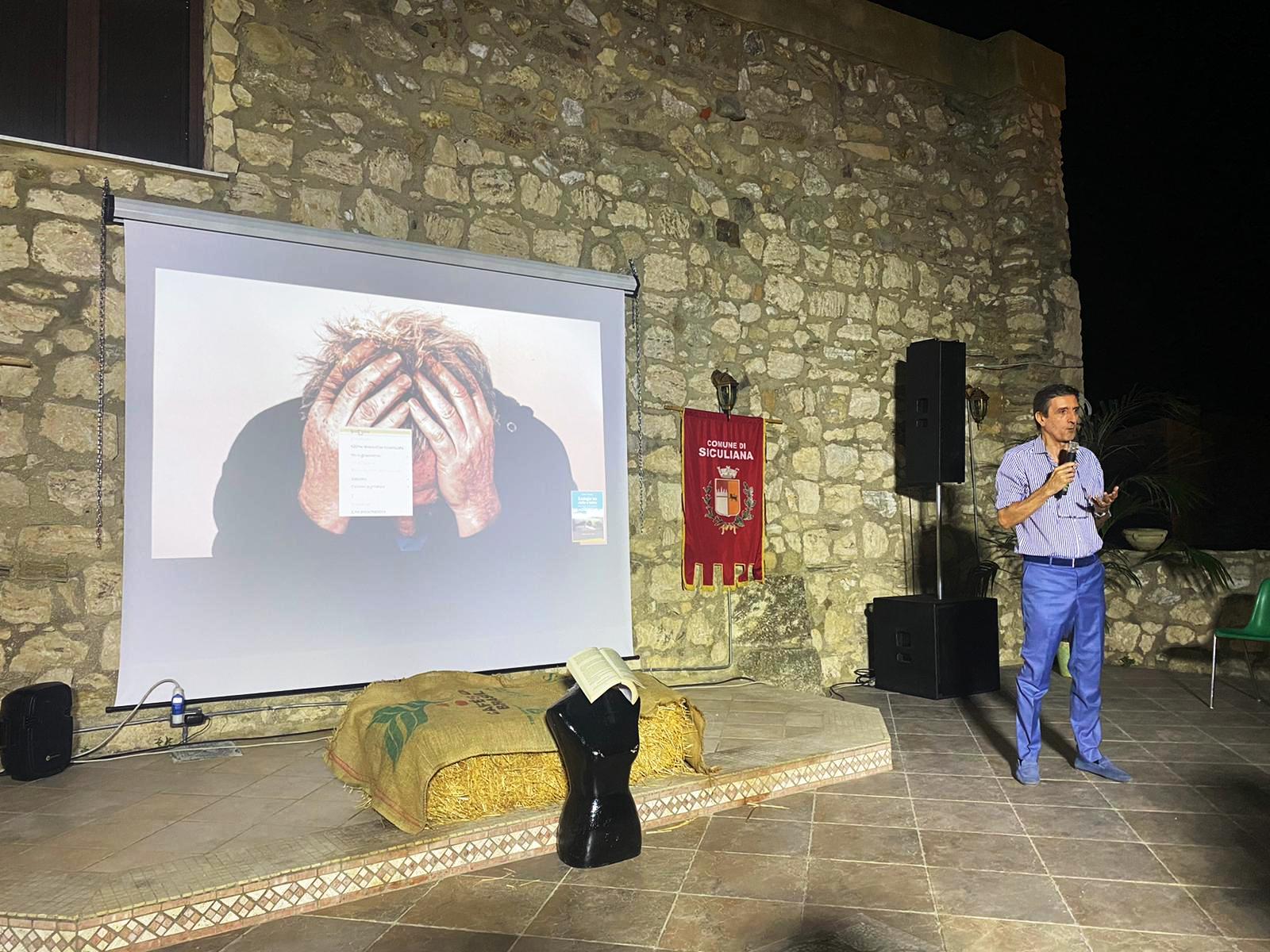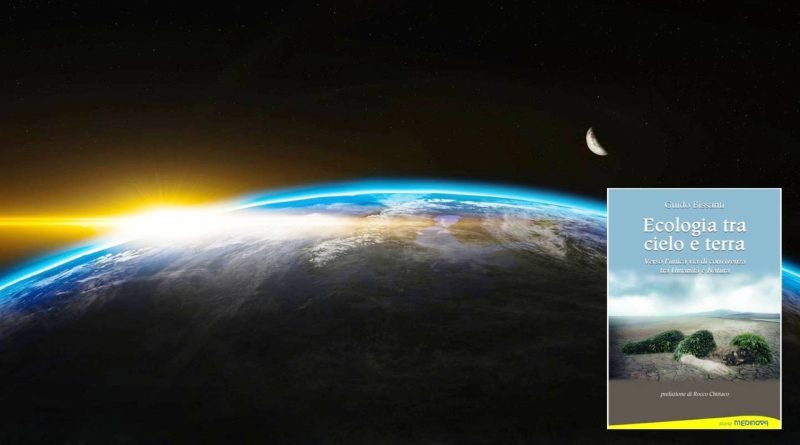La ecología integral de Guido Bissanti
La ecología integral de Guido Bissanti *
The barricades in the square / you do them on behalf of the bourgeoisie / which creates false myths of progress. These prophetic verses by Franco Battiato, dating back to 1980, when the sixty-eight myths had not yet completely crumbled, can accompany access to the book Ecology between heaven and earth by Guido Bissanti, published by Medinova and presented in one of the cultural events, that dot the Sicilian summer, in the evocative setting of the Garden of the Sanctuary.
Compared to the mainstream version of the problems relating to the health of our planet, this one by Bissanti is a counter-current essay that highlights the failure of the Enlightenment conception of nature enslaved and raped by man acted by the demon of capitalist accumulation. The author attacks «the false myths of progress» represented by a technology split off from any form of humanistic thought and at the same time identifies in spirituality the basic element that has failed in the relationship between man and nature. Through an examination of the great religions from Christianity, to Islam, Hinduism, Buddhism, Taoism, Shintoism, Bissanti demonstrates how all are animated by sacred respect, by fear of panic, towards the forces of nature that in some cases they assume the identity of the same divinity. In the religious dimension, man has an intimate and sacred relationship with nature, in the universe of modern technology the relationship has become parasitic and destructive. It is certainly no coincidence that Hans Jonas, the philosopher who with the Principle of responsibility gave us the summa of ecological thought, is also one of the leading scholars of ancient Gnosticism in the world.
The Enlightenment treated religion as a childish and obscurantist expression of a primitive humanity that had to redeem itself in the light of the goddess of reason. However, it did not generate a culture capable of understanding man in his totality. Guido Bissanti, who is an agronomist, researcher, university professor, essayist with various works to his credit, is not the first time that he has tackled the relationship between spirit and matter in the scientific field, but in this study he does so in a specific way, deepening the connection. with ecology. «Ecology» he writes «is based on an economy shared by everyone (from the most microscopic beings to the great phenomena of nature); the liberal economy makes subjugation, exploitation, mercantile colonialism (and more) its creed and its bible.

Las ciencias económicas del liberalismo son la negación de la ciencia”. El problema ecológico es un problema económico y si apostamos por una economía anarquista, libre de cualquier límite o restricción, la misma naturaleza se convierte en su víctima y con ella también sucumbe el hombre. ¿Y la espiritualidad? Es sin duda la parte más estimulante del ensayo. Comparación de liberalismo y espiritualidad. El hombre espiritual tiene un dominio absoluto de sí mismo, y esto no es tolerable para el liberalismo frenéticamente dominante y omnipresente. El hombre del tercer milenio debe hacer de la espiritualidad un valor intrínseco de su propia existencia si quiere sobrevivir a la furia devastadora del nihilismo liberal. Es espiritualidad resistir la seducción de la materia mercantilizadora y mercantilizada; es la espiritualidad para trasladar el epicentro del ser a la trascendencia del cuerpo, convertido ahora en el fetiche sensorial y sensual del poder para vaciar al hombre de todo conocimiento de libertad y soberanía sobre sí mismo. Hoy todo lo real es reemplazado por su imagen mental propuesta por un poder invasivo y totalitario. Despertar de esta hipnosis masiva significa ingresar a una dimensión desde la cual puedes observar los movimientos del dominio sin ser tragado. Este, en términos de actividad individual, el mensaje deducible de las páginas de Ecología entre el cielo y la tierra, un ensayo que a pesar y a pesar de las continuas referencias al pensamiento católico en forma de encíclicas del Papa Francisco, mantiene un alto perfil de contestación radical de las políticas actuales adoptadas por Occidente.
Guido Bissanti está dispuesto a decir que no es un político y que no tiene intención de dedicarse a la política, porque lo distraería de sus estudios e investigaciones; esta fidelidad a la propia vocación o fe en sí mismo le permite decir verdades irreductiblemente antisistema con la despreocupación o casi con la modestia de quien habla de algo evidente y al alcance de cualquiera. Es mejor así. En su ¿Cómo el Titanic? (Aracne Editrice), leemos: «Una ciencia que no llega a ser, ella misma, observada, corre el riesgo de servir, como lamentablemente sucede cada vez más, al interés de los poderosos y no de la humanidad. Hoy somos testigos de un cientificismo peligroso y engañoso que tiene un efecto devastador en las mentes de los débiles. El mismo efecto que tuvo la religión del estado en siglos pasados. La ciencia se ha convertido en poder, se ha transformado en un instrumento de dominación y arrogancia y estamos asistiendo cada vez más a un fanatismo científico sin precedentes”. Son palabras, escritas en 2015, de las que en los últimos dos años hemos podido comprobar la aterradora realidad y que dan la medida de la seriedad del discurso realizado por nuestro escritor agrónomo.
* Reseña del libro: Ecología entre el cielo y la tierra de Diego Guadagnino

